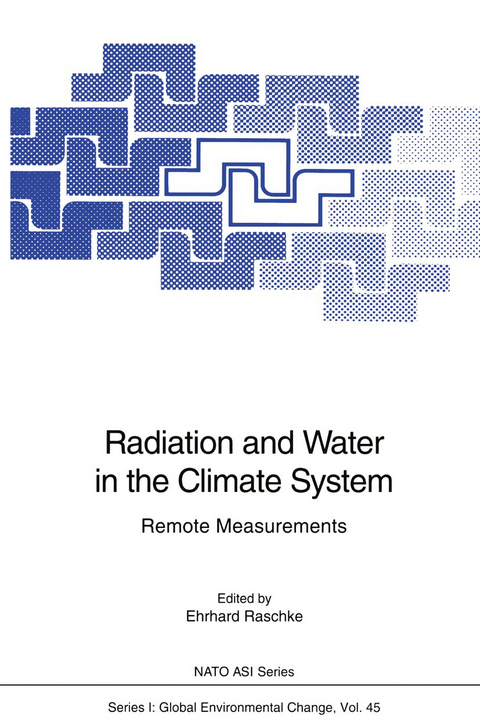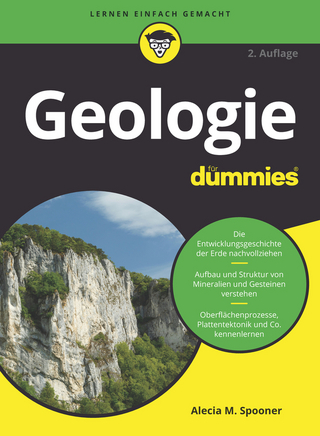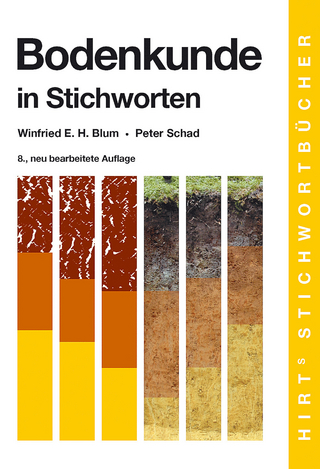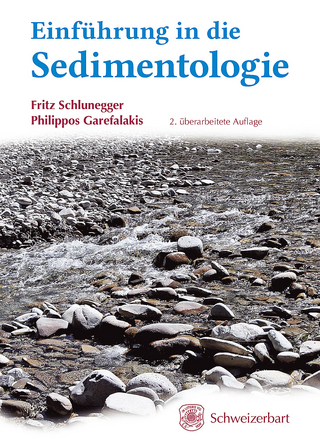
Radiation and Water in the Climate System
Springer Berlin (Verlag)
978-3-540-61470-8 (ISBN)
The search for an accurate knowledge of the transfer of energy and water in our climate system and of all participating processes is still a burning issue within environmental and climate research. More reliable ways should be found to model them in their complex interplay with cascades of processes in that system, and their impact on all our resources on earth. Such modelling needs also validation with accurate and complete observations which in turn should also enable to observe variations of climate components. These are the goals of the Global Energy and Water Experiment (GEWEX), which began its work about 8 years ago. Many advanced remote sensing capabilities have now been developed, of which only a few will enter into satellite based platforms. These new developments should be brought to the attention of a broader community of younger scientists, in particular of those countries which quite recently could open their borders for free exchanges.
A: Some Background on Observations, Data Assimilation and Modeling.- 1 Energy and Water Cycles in the Climate System: What can we measure from space?.- 2 Observational Requirements for Modeling of Global and Regional Climate Change.- 3 Surface Fluxes of Momentum, Heat, and Water Vapor.- 4 Introduction to Numerical Weather Prediction Data Assimilation.- 5 Priciples of Active and Passive Remote Measurements of Water in the Atmosphere and at Ground.- 6 Extratropical Cyclones: Their Mesoscale Structure, Precipitation and Role in the Transport of Water.- B: Remote Sensing of Clouds, Radiation and Precipitation.- 7 Clouds and the Radiative Heating of the Earth Surface-Atmosphere System.- 8 Remote Sensing of Atmospheric Water Vapor.- 9 Properties of Clouds and Cloud Systems.- 10 Lidar Measurements: Atmospheric Constituents, Clouds, and Ground Reflectance.- 11 Retrieval of Precipitation from Satellites.- 12 Precipitation at the Ground: Radar Techniques.- 13 Ground-Based Remote Sensing of Cloud Properties Using Millimeter-Wave Radar.- C: Properties and Processes at Ground.- 14 Remote Sensing of Soil Moisture.- 15 Remote Sensing Parameterization of Meso-scale Land Surface Evaporation.- 16 Satellite Remote Sensing of Evaporation over Sea.- 17 Applications of Passive and Active Microwave Sensors to the Study of Weather Systems over the Ocean.- 18 Physical Basis for Microwave Remote Sensing of Sea Ice and Snow.- 19 Retrieval of Sea Ice and Snow Parameters from Microwave Radiometer and Radar Data.- D: New Developments.- 20 TRMM: The Tropical Rainfall Measuring Mission.- 21 Model Development for Passive Microwave Remote Sensing at ESA ESTEC.- E: Poster Sessions.- 22 Poster Summaries.
| Erscheint lt. Verlag | 17.9.1996 |
|---|---|
| Reihe/Serie | Nato ASI Subseries I: |
| Zusatzinfo | XI, 617 p. 306 illus., 6 illus. in color. |
| Verlagsort | Berlin |
| Sprache | englisch |
| Maße | 152 x 229 mm |
| Gewicht | 1060 g |
| Themenwelt | Naturwissenschaften ► Geowissenschaften ► Geologie |
| Naturwissenschaften ► Geowissenschaften ► Hydrologie / Ozeanografie | |
| Naturwissenschaften ► Geowissenschaften ► Meteorologie / Klimatologie | |
| Schlagworte | climate change • climatology • Energie- und Wasserkreisläufe • Energy and water cycles • Fernerkundung • Klimaänderung • Klima / Klimatologie • Klimatologie • precipitation • Radiometer • Rain • Remote Sensing • Satellite • scale • Snow • Wasserhaushalt (geolog.) • Weather • Wetter |
| ISBN-10 | 3-540-61470-2 / 3540614702 |
| ISBN-13 | 978-3-540-61470-8 / 9783540614708 |
| Zustand | Neuware |
| Haben Sie eine Frage zum Produkt? |
aus dem Bereich


